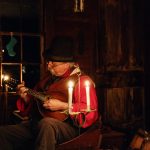Timeline of Lowell History
c. 1600: Passaconaway, a Pennacook chief living at Pawtucket Falls, emerges as leader of the Merrimack Valley’s native peoples. 1635: English settlers move into the valley. 1652: The area called Wamesit, between the Merrimack and Concord rivers, is declared Indian territory.Get Our FREE Yankee Food Award Gift Guide! Email(Required) 1655: Chelmsford is chartered on the […]
c. 1600: Passaconaway, a Pennacook chief living at Pawtucket Falls, emerges as leader of the Merrimack Valley’s native peoples.
1635: English settlers move into the valley.
1652: The area called Wamesit, between the Merrimack and Concord rivers, is declared Indian territory.
1655: Chelmsford is chartered on the Merrimack River, on land that is now Lowell.
1710: The Varnum family builds a gristmill on the Merrimack River.
1737: A small textile mill is built on land that will become Lowell.
1814: Francis Cabot Lowell invents the American power loom. Boston Mfg. Co. is established on the Charles River in Waltham, MA.
1822: The first large textile mill is built on land that will become Lowell. Local men and Irish workers from Boston dig Lowell’s first power canal.
1823: Merrimack Mfg. Co. produces its first textiles. Most workers are young Yankee women from the countryside: “mill girls.”
1826: The Town of Lowell is incorporated.
1831: Lowell High School is founded: first co-ed public high school in the U.S.
1834: James Abbott McNeill Whistler is born in Lowell (his father is chief engineer for Proprietors of Locks & Canals).
1835: Boston & Lowell Railroad begins service.
1836: The City of Lowell is incorporated. The city seal reads “Art Is the Handmaid of Human Good.”
1843: Dr. J. C. Ayer opens a lab for patent medicines, soon a major local industry.
1844: Sarah Bagley and the Lowell Female Labor Reform Association fight for a 10-hour workday.
1850: Lowell is home to 40 textile mills, 10,000 looms, and 10,000 millworkers, producing 50,000 miles of cloth a year: largest industrial complex in the U.S., second-largest MA city.
1861: Volunteer militiamen Luther Ladd and Addison Whitney of Lowell are killed in a riot in Baltimore, MD: first Union casualties of the Civil War.
1876: Dr. Augustin Thompson invents Moxie. Marketed initially as a “nerve food,” it outsells Coca-Cola into the 1920s.
1877: Alexander Graham Bell demonstrates his telephone in Lowell. Two years later, Lowell is the first U.S. city to have phone numbers.
1894: Lowell Normal School for teacher education is founded, followed by Lowell Textile School a year later: roots of today’s University of Massachusetts at Lowell.
1900: 43 percent of Lowell’s population is foreign-born (Irish, French Canadian, Scottish, Greek, Polish, Italian, Armenian, Portuguese, Swedish, Lithuanian, Syrian, Lebanese, Russian, and other nationalities).
1908: Bette Davis is born in Lowell.
1912: Lowell’s labor activists organize in sync with the “Bread & Roses” strike downriver in Lawrence, MA.
1920s: Lowell’s textile industry declines, with companies moving to the South. City population peaks at 112,759.
1922: Jack Kerouac is born in Lowell.
1925: Edith Nourse Rogers represents Lowell and surrounding District 5 communities in Congress, serving through 1960: longest continuous congressional service by a woman.
1931: Harper’s Magazine describes Lowell as a “depressed industrial desert.”
1936: A major flood ravages Lowell.
1940: Only three major textile mills are left in Lowell; shoe industry is failing; 40 percent of the population is “on relief.”
1950: Jack Kerouac publishes his first “Lowell” novel: The Town and the City
1975: First Southeast Asian refugees settle in Lowell, building toward the second-largest Cambodian American enclave in U.S. by 1990.
1976: Computer manufacturer Wang Labs opens its international headquarters in Lowell.
1978: Lowell National Historical Park is created to recognize the beginnings of the American Industrial Revolution.
1986: Charles, Prince of Wales, visits Lowell to see historic preservation in action.
1987-89: Lowell hosts the National Folk Festival three years running.
1988: Jack Kerouac commemorative sculpture and park are dedicated.
1990: First Lowell Folk Festival, now an annual tradition. Preservation magazine hails Lowell as “the relevant precedent emulated by rehabilitated gritty cities worldwide.”
1992: Wang Labs files for bankruptcy protection. Lowell native and former U.S. senator Paul Tsongas wins 8 presidential primaries and caucuses.
1996: The Lowell Spinners, a minor-league Red Sox affiliate, begin play.
2000: National Trust for Historic Preservation names Lowell one of America’s “Dozen Distinctive Destinations.”
2006: UMass Lowell announces a plan to build an $80 million nanotechnology center.
2009: Brazilian, African, and Iraqi families are among Lowell’s newcomers.
READ MORE:
Lowell, MA: Poet Paul Marion
Yankee Classic: Jack Kerouac
Lowell, MA: Where to Go







